Let’s be real AI job loss is one of the biggest fears people have right now. You keep hearing about AI automation replacing jobs, tools that do the work of five employees, and robots showing up in industries you never thought could be automated. It’s everywhere from customer service and writing to design, coding, even law. So yeah, if you’ve ever asked “How to avoid AI taking your job?”, you’re not alone.
But here’s the good news: you’re not powerless. Yes, there’s a real threat of AI to jobs, especially routine or repetitive ones, but there are also clear ways to stay ahead of it. This post isn’t about panic. It’s about clarity. I’ll walk you through exactly how to future proof your skills, build real value, and adapt to what the future of work with AI actually looks like.
By the end, you’ll have a solid plan not just to survive, but to grow in the AI era. Because while some jobs are changing or disappearing, new ones are being created too. The key is knowing how to pivot before it’s too late.
Table of Contents
Understanding AI and Its Impact on the Workplace
To understand how to protect your job, you first need to know what’s actually happening with AI in the workplace. It’s not just hype anymore AI automation is already changing how businesses run. From chatbots handling support tickets to tools that write emails or analyze massive datasets in seconds, the shift is real. And it’s moving fast.
But AI isn’t just about replacing people. In many cases, it’s about doing the repetitive stuff sorting data, generating reports, managing schedules so humans can focus on higher level work. That sounds great in theory, but it also means some roles are more at risk than others. Jobs that rely heavily on routine, predictable tasks? They’re the first in line for disruption.
We’ve already seen examples of this. Some companies are hiring fewer junior analysts because AI can now crunch numbers faster. Others are using AI to write first drafts of marketing copy or legal documents. These changes raise fair concerns about AI job displacement and AI’s impact on employment overall.
Still, not all industries or positions are equally affected. Jobs that require creativity, emotional intelligence, or hands on problem solving are much harder to automate. So the more your work involves human thinking, decision-making, or connection, the safer you are for now.
The key is staying informed and adapting. Because like it or not, the future of work with AI is already here. The question isn’t “if,” but “how do I stay ahead of it?”
Assessing Your Industry’s AI Risk Level
Before you start learning new skills or panicking about robots taking over, take a step back and look at your industry. Not every job is equally threatened by AI. Some are at high risk of being automated soon, while others might barely be touched. Knowing where your field stands can help you make smarter moves.
- Start by asking yourself a few simple questions:
- Does your job involve repetitive tasks?
- Can your daily work be done by following a set of rules or patterns?
- Are companies already using AI tools in your field?
If you answered “yes” to any of those, your role might be more exposed to AI job automation than you thought. For example, data entry, basic customer support, and certain finance roles are already being handled by AI in some companies. On the flip side, jobs in healthcare, creative industries, skilled trades, and leadership roles are still relatively safe for now.
Many websites and research groups publish AI risk reports where you can look up your profession and see how vulnerable it is. Taking the time to do this gives you clarity, not fear. The goal isn’t to scare you it’s to help you plan ahead in a smart way and keep your job security in the AI era.
Jobs at Risk vs Jobs That Are Safer
wanna know How to avoid AI taking your job? You’re not alone. Honestly, that’s what pushed me to start learning more myself. The good news is, not every job is equally threatened. Some roles are already being impacted by AI, while others are harder to replace at least for now.
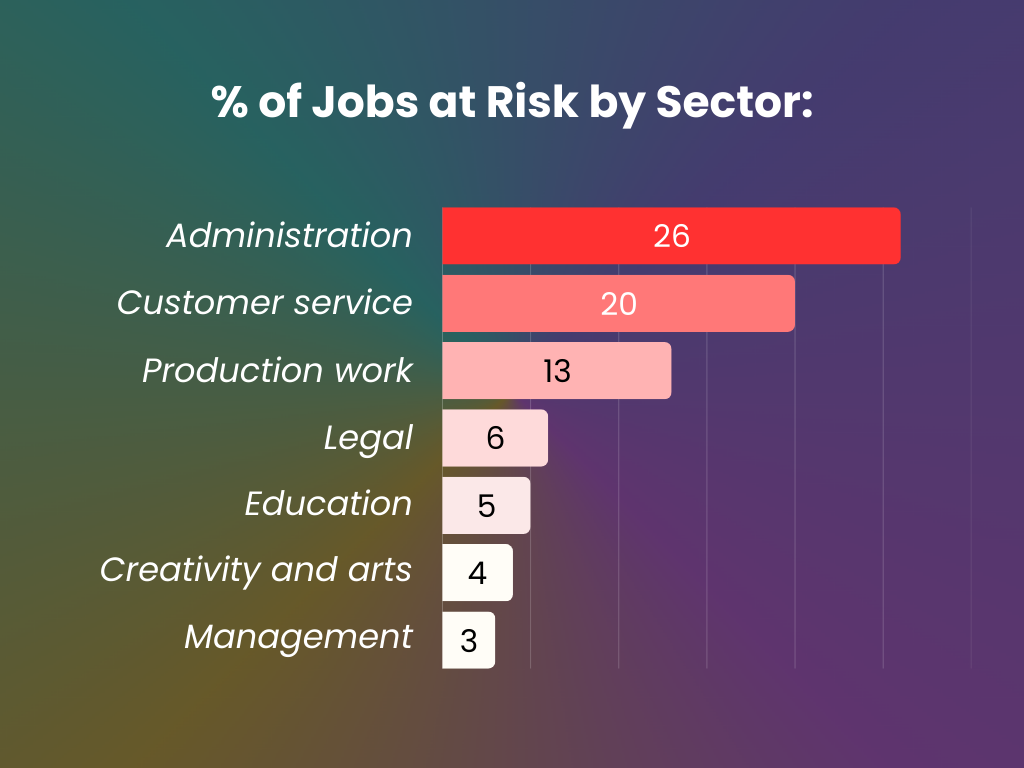
Here’s a quick table to give you an idea about How to avoid AI taking your job?
| At Risk by AI (High Automation Potential) | Safe from AI (Low Automation Potential) |
| Translators, Interpreters | Healthcare Professionals (Nurses, Doctors, Therapists) |
| Writers, Authors, Journalists | Skilled Trades (Plumbers, Electricians, Carpenters, Roofers) |
| Customer Service Reps | Creative Artists (Musicians, Painters, Sculptors) |
| Telemarketers | Mental Health Professionals (Psychologists, Counselors) |
| Data Entry Clerks | Educators, Teachers |
| Administrative Assistants | Social Workers |
| Accounting, Bookkeeping | AI & Robotics Engineers |
| Market Research Analysts | Cybersecurity Experts |
| Proofreaders, Copy Editors | Physical Therapists |
| Sales Representatives | Chefs, Cooks |
| Travel Agents, Ticket Clerks | Hairdressers, Barbers, Massage Therapists |
| Call Center Operators | Construction Workers |
| Factory Workers (Repetitive tasks) | Agricultural Equipment Operators |
| Financial Analysts (Routine tasks) | Embalmers |
| Librarians (Routine tasks) | Hazardous Materials Removal Workers |
| Receptionists | Supervisors of Firefighters |
| Computer Support Specialists (Basic) | Oral and Maxillofacial Surgeons |
Cultivating In-Demand Technical Skills
Let’s talk about skills because the best way to avoid being replaced by AI is to become someone who knows how to work with it. The truth is, AI is not going away. So instead of ignoring it, the smarter move is to upskill and stay valuable in a changing job market.
You don’t have to become a programmer overnight, but having some basic tech skills gives you a big advantage. Start with data literacy learning how to read and work with data, even at a simple level, can make you much more useful. Next, explore how the tools in your field are changing. Are marketers using AI to generate content? Are HR teams using AI to screen candidates? Learn those tools and get comfortable with them.
If you’re feeling stuck, there are tons of free or low-cost resources online. Websites like Coursera, edX, and even YouTube offer solid beginner courses in AI tools, automation basics, and digital productivity skills. You don’t need a degree just curiosity and consistency.
Some other good starting points:
- Learn how to use ChatGPT, Notion AI, or other industry-relevant tools.
- Understand basic automation platforms like Zapier or Make.
- Get familiar with spreadsheet tools, analytics dashboards, and reporting software.
These aren’t just resume boosters they’re ways to stay relevant as your industry changes. If AI is going to be your coworker, you want to be the one who knows how to manage it, not the one being replaced by it.
Developing Human Centered (“Soft”) Skills
Now let’s shift gears. While technical skills are important, what really sets you apart from AI is your ability to think, feel, and connect like a human. Sounds obvious, right? But these “soft skills” are becoming your biggest edge in the workplace.
AI is great at solving math problems, organizing information, or even writing a report but it still struggles with things like empathy, creativity, intuition, and nuanced communication. So if you’re wondering how to stay relevant, start strengthening the things only humans do well.
Skills like critical thinking, emotional intelligence, active listening, and storytelling aren’t just nice to have anymore they’re essential. Whether you’re leading a team, managing clients, or working in customer service, these human-centered traits make you hard to replace.
One way to start is by practicing real communication: giving better feedback, asking thoughtful questions, and being present in conversations. These may not feel like “skills,” but they’re a huge part of why companies still need people involved.
Also, if you’re just starting to explore what AI can and can’t do, it helps to first understand the basics. I’ve written a simple guide on what AI actually is if you want a quick breakdown. Knowing the limits of AI helps you focus on the things it can’t do which is where you shine most.
Embracing AI as a Productivity Partner
Here’s a mindset shift that changes everything: AI isn’t always your competitor it can be your co-pilot. Instead of fearing it, think of how it can help you get more done, faster. Many people are using AI tools to brainstorm ideas, organize projects, write first drafts, or summarize research. It’s not about being lazy it’s about working smarter.
The truth is, if you know how to use AI wisely, you can boost your productivity without burning out. Writers are using tools like ChatGPT to speed up content creation, marketers are generating campaign ideas in minutes, and even small business owners are automating boring tasks like invoicing or scheduling. These tools aren’t replacing their jobs they’re making them better at what they do.
That said, it’s important to be thoughtful. You don’t want to become overly dependent or misuse the technology. If you’re curious about the risks and how to find the right balance, check out my post on how to cautiously use AI for work. It breaks down the do’s and don’ts in a very real way.
Used wisely, AI can help you do your job not lose it.
Building a Personal Brand and Network
If there’s one thing AI can’t compete with, it’s you. Your voice, your ideas, your presence that’s what makes you valuable. And the best way to show that? Build your personal brand.
You don’t need to be an influencer. Just start sharing your thoughts online. Write about your work, what you’re learning, or even how you’re using AI tools in your job. Platforms like LinkedIn are perfect for this. A simple post now and then helps people see what you bring to the table.
And don’t forget to connect with others. Join communities in your field, reach out to people you admire, and show up where the conversations are happening. In a world of automation, real human connection matters more than ever.
AI might be fast but it can’t build relationships. You can.
Staying Agile with Continuous Learning
Let’s be honest none of us can afford to stay still anymore. What worked a few years ago might not work tomorrow, especially with how fast AI is moving. If you want to stay employable, learning has to become part of your routine. Not in a stressful way but in small, steady steps.
You don’t need to commit to full-time courses or expensive programs. Just start with what fits into your day. Even 15–20 minutes a few times a week adds up. Pick something relevant to your field, or something that complements your current role. It could be as simple as learning how to use a new AI tool, brushing up on Excel, or taking a free course on Coursera.
What helps is having a simple learning plan. Jot down what you want to improve, then track your progress every week. It keeps you focused and motivated.
Exploring Adjacent and Emerging Roles
If your current role feels shaky, don’t panic pivot. One of the smartest ways to stay relevant is to explore adjacent jobs or new roles that are growing because of AI, not in spite of it.
For example, if you’re in marketing, you could learn how to become a prompt engineer someone who knows how to guide AI tools to create better content. If you work in admin, roles like AI tool specialist or automation coordinator are popping up everywhere. These jobs need people who understand both the work and the tech.
And then there are brand new roles: AI ethics consultant, data curator, AI trainer. These didn’t exist a few years ago, and now they’re in demand. You don’t need to change your whole career just shift slightly toward what’s next.
Keep an open mind. Sometimes, the future isn’t about finding a new job it’s about reshaping the one you already have.
New jobs created for AI:
| New AI Job | Focus |
| Prompt Engineer | AI input design |
| AI Ethicist | Fair AI rules |
| AI Product Manager | AI product launch |
| AI Architect | AI system design |
| AI Trainer | Teach AI data |
| Generative AI Spec | Creates new content |
| AI Cyber Spec | Protects AI |
| AI Hardware Eng. | AI chip design |
| AI Integration Spec | AI tool adoption |
| AI Curriculum Dev. | Teach AI skills |
| AI Learning Coach | Personal learning |
| Clinical AI Valid. | Medical AI safety |
| AI Climate Modeler | Climate solutions |
| AI Auditor | AI system check |
| AI Storyteller | AI creative writing |
| Chatbot Developer | Build AI chat |
Innovating Within Your Organization
One of the smartest ways to stay relevant? Be the person who brings smart ideas to the table especially around AI. If your company isn’t using AI yet, suggest a small way to test it. If they are, find gaps or inefficiencies you can improve.
You don’t need to be an expert. Just being curious and proactive makes you stand out. Start small maybe suggest using AI for scheduling, brainstorming, or data tasks. Companies value people who help them adapt, not just follow along.
Considering Entrepreneurship and Side Hustles
If your job feels unstable, why not build something of your own on the side? AI tools now make it easier than ever to start freelancing, launch a micro-business, or create digital products often with little cost.
You don’t need to quit your job. Just carve out time for a small project that could grow. Use AI to help with tasks like writing, design, planning, or automation. A side hustle gives you options and in an AI-driven world, having options is power.
Conclusion
The workplace is changing fast, and AI is playing a big role in that shift. But that doesn’t mean you’re out of luck. By staying adaptable, learning new tools, and building on the strengths only humans have, you can stay ahead of the curve.
Even small step like exploring new roles or using AI in smarter ways can help you stay relevant. The future belongs to those who keep moving.
In the end, it all comes down to one thing: knowing how to avoid AI taking your job.
Will AI actually replace my job?
AI is likely to replace tasks, not entire jobs. Roles focused on routine work are more at risk, while creative, strategic, and human facing jobs remain safer.
What jobs are most at risk due to AI automation?
Jobs with repetitive, rule based tasks like data entry, telemarketing, and basic admin roles face higher risk of automation in the near future.
How can I future proof my career in the age of AI?
Focus on developing human centered skills like critical thinking, emotional intelligence, and creativity, while also learning how to work alongside AI tools.
Is learning AI tools necessary to stay employable?
Yes. Even basic familiarity with AI-powered tools can give you a major edge, especially in industries already integrating automation into daily workflows.
Can I switch careers to avoid AI job loss?
Yes, shifting into adjacent roles that involve managing or supporting AI, like project coordination or prompt engineering, is a smart career move.

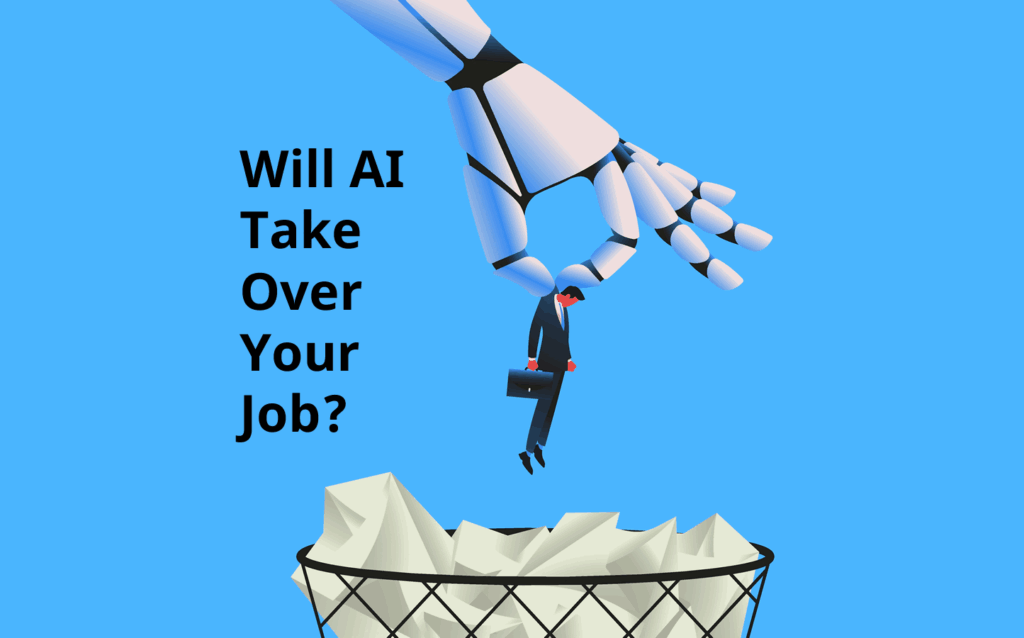
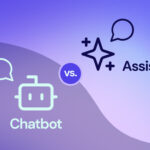
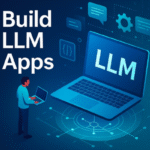


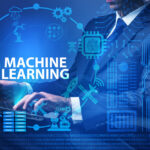

Leave a Comment